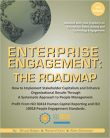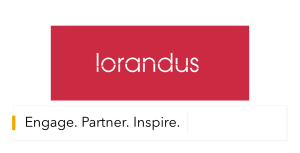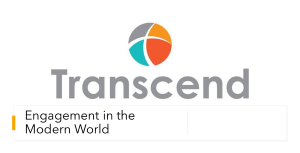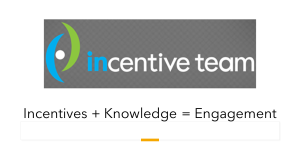Perspective from the Right: What's Wrong With Stakeholder Capitalism
As an advocate for the proper implementation of Stakeholder Capitalism principles, the Enterprise Engagement Alliance does everything it can to enable the expression of all viewpoints. ESM followed up with Wayne Winegarden, whose recently published article on Stakeholder Capitalism in National Review raises serious and legitimate dangers for business. His views highlight the challenges of discussing a field without a dictionary definition. ESM recently highlighted the critical views of Peter S. Goodman, Global Economic Correspondent for the New York Times, expressed in his book, “Davos Man—How the Billionaires Devoured the World?” See ESM: Davos Man Author on the Dangers of Stakeholder Capitalism.
 Because there is no definition for Stakeholder Capitalism in any dictionary, the Enterprise Engagement Alliance in 2020 developed the following definition: “Stakeholder Capitalism seeks to create shareholder returns only by creating value for society – customers, employees, suppliers, communities, and the environment.” It is based on how the issue of stakeholder management has been addressed over the 30 or so years since R. Edward Freeman published the book: Strategic Management: A Stakeholder Approach--the earliest formal embodiment of this theory of business management. The EEA definition was created in collaboration with Alex Edmans, Professor of Finance at the London Business School and author of Grow the Pie, How Great Companies Deliver Both Purpose and Profit, and Martin Whittaker, CEO of JUST Capital, a leading proponent of Stakeholder Capitalism.
Because there is no definition for Stakeholder Capitalism in any dictionary, the Enterprise Engagement Alliance in 2020 developed the following definition: “Stakeholder Capitalism seeks to create shareholder returns only by creating value for society – customers, employees, suppliers, communities, and the environment.” It is based on how the issue of stakeholder management has been addressed over the 30 or so years since R. Edward Freeman published the book: Strategic Management: A Stakeholder Approach--the earliest formal embodiment of this theory of business management. The EEA definition was created in collaboration with Alex Edmans, Professor of Finance at the London Business School and author of Grow the Pie, How Great Companies Deliver Both Purpose and Profit, and Martin Whittaker, CEO of JUST Capital, a leading proponent of Stakeholder Capitalism.
The right-wing National Review has launched an all-out campaign against Stakeholder Capitalism based on a definition it has fabricated equating it with “woke” capitalism. See: Larry Fink: Emperor, a recent article that equates Stakeholder Capitalism with “corporatism,” the control of a state or organization by large interest groups.
To learn more about this point of view, ESM interviewed Wayne Winegarden, author of a recent National Review article opposing Stakeholder Capitalism. The main disagreement Wayne Winegarden has with the concept of Stakeholder Capitalism boils down to his definition. Winegarden defines it as a movement stating that: “Companies have an obligation to serve the interests of all stakeholders, beyond just employees, customers, and shareholders, to involve the broader community of diverse individuals who have no direct connection to the company’s interests.” Click here for his recent National Review article: “The Empty Case for Stakeholder Capitalism and ESG Investors.”
Wayne Winegarden is Senior Fellow and Director Center for Medical Economics and Innovation at Pacific Research Institute. Though his article was published in the right-leaning National Review, Winegarden says he does not align himself with partisan causes and that his views represent an economic perspective.
Even though there are no new regulatory requirements forcing companies to address this broader community of stakeholders, Winegarden sees this pressure playing out in proxy meetings from growing numbers of ESG (Environmental, Social, Governance) and other investor groups with narrow interests that “are the basis for my concern about property rights.” He believes this pressure can have a pernicious impact on how companies allocate resources that can be to the detriment to shareholders, because there is no proof that addressing these ad hoc and often vague concerns will help the organization’s bottom line.”
Winegarden says he agrees with the business management principles of the EEA definition of Stakeholder Capitalism and that helping organizations implement them could be a profitable business for management advisors “with skin in the game.” He has two objections to the EEA definition:
1) He believes it is inconsistent with what believes is established usage. “Most people who use the term are not using it in the manner you describe.” He was not hopeful that the Enterprise Engagement Alliance definition could change that trajectory with its own definition, which is based on the work of one of the founders of the field in 1984, long before the issue of “Woke” capitalism.
2) “There’s really nothing new. It’s just good business practice. For the academic world, it’s not a new economic discipline or theory.”
He underlines: “If you are talking about this as a strategic management approach and the importance of organizations effectively interacting with their stakeholders, that makes sense. That’s a management consultant’s service. That’s not a new theory of how markets work.”
Of course, he adds, “Individual companies have an obligation to serve their customers and investors and in so doing have the right to experiment in any manner they wish in how they create and manage their products and services and people. As they grow wealthier and appreciate the people who help their organizations, they have the resources to address a higher level of wants, which is how capitalism creates prosperity.”
By creating a new economic concept of Stakeholder Capitalism using his understanding of the definition, Winegarden says, creates the danger of giving people a “seat at the table who have no skin in the game, with troubling outcomes. With the best of intentions, the outcome can be lower growth and less prosperity.”
Master the “S” of Environmental, Social, Governance (ESG), A.k.a. Stakeholder Capitalism
The Enterprise Engagement Alliance at TheEEA.org is the world’s first and only organization that focuses on outreach, certification and training, and advisory services to help organizations achieve their goals by fostering the proactive involvement of all stakeholders. This includes customers, employees, distribution and supply chain partners, and communities, or anyone connected to an organization’s success.
Training and Thought Leadership
- Founded in 2008, the Enterprise Engagement Alliance provides outreach, learning and certification in Enterprise Engagement, an implementation process for the “S” or Social of Stakeholder Capitalism and Human Capital Management and measurement of engagement across the organization.
- The Enterprise Engagement Alliance provides a training and certification program for business leaders, practitioners, and solution providers, as well as executive briefings and human capital gap analyses for senior leaders.
- The EEA produces an education program for CFOs for the CFO.University training program on Human Capital Management.
- Join the EEA to become a leader in the implementation of the “S” of ESG and Stakeholder Capitalism.
- The ESM information portal and The Enterprise Engagement Advisors Network solution provider marketplace cover all aspects of stakeholder engagement, and the EEA information library lists dozens of resources.
- The RRN information portal and Brand Media Coalition marketplace address the use of brands for gifting, incentives, recognition, and promotions. The BMC information library provides information and research resources.
Video Learning
The EEA Human Capital Management and ROI of Engagement YouTube channel features a growing library of 30- to 60-minute panel discussions with leading experts in all areas of engagement and total rewards.
- Enterprise Engagement for CEOs: The Little Blue Book for People-Centric Capitalists. A quick guide for CEOs.
- Enterprise Engagement: The Roadmap 5th Edition implementation guide. A comprehensive textbook for practitioners, academics, and students.
Enterprise Engagement Advisory Services
The Engagement Agency helps:
- Organizations of all types develop strategic Stakeholder Capitalism and Enterprise Engagement processes and human capital management and reporting strategies; conduct human capital gap analyses; design and implement strategic human capital management and reporting plans that address DEI (Diversity, Equity, and Inclusion), and assist with managed outsourcing of engagement products and services.
- Human resources, sales and marketing solution providers profit from the emerging discipline of human capital management and ROI of engagement through training and marketing services.
- Investors make sense of human capital reporting by public companies.
- Buyers and sellers of companies in the engagement space or business owners or buyers who seek to account for human capital in their mergers and acquistions.
For more information: Contact Bruce Bolger at Bolger@TheICEE.org or call 914-591-7600, ext. 230.


















